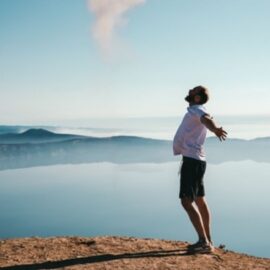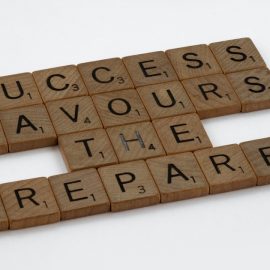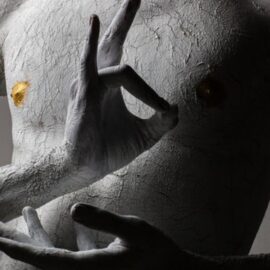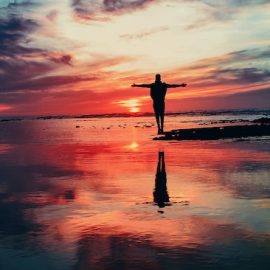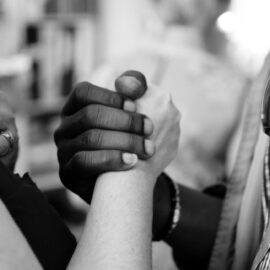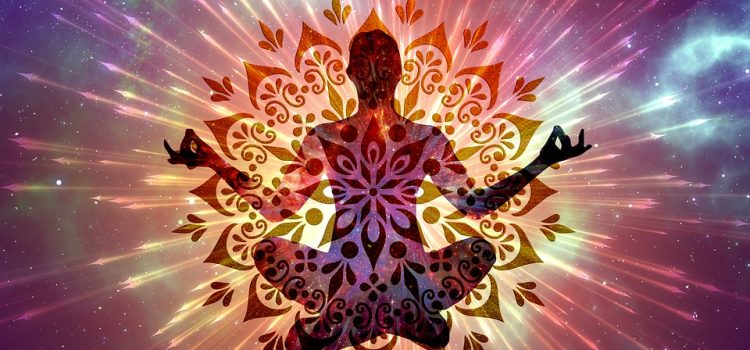
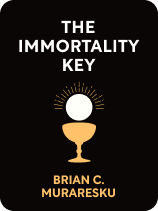
This article is an excerpt from the Shortform book guide to "The Immortality Key" by Brian C. Muraresku. Shortform has the world's best summaries and analyses of books you should be reading.
Like this article? Sign up for a free trial here.
Can psychedelics induce a direct experience of the Divine? How did ancient religions use psychedelics to induce spiritual states?
Many religions have a history of performing rituals that involved the consumption of hallucinogenic beverages to induce mystical or transcendental experiences. The descriptions of these experiences feature themes of death, rebirth, and immortality, acting as a gateway to a direct experience of the Divine.
Keep reading to learn about the religious use of psychedelics.
The Ancient Ritual Experience
In descriptions of the Eleusinian Mysteries, it’s said that the ancient secret was that one must die before dying. According to Muraresku’s research, the most common description by initiates is that they underwent a transformative experience involving a metaphorical death and rebirth (through the religious use of psychedelics) and were given a sense of their own immortality.
In AD 364, the Christian emperor Valentinian attempted to shut down the Mysteries, but after substantial pushback, he eventually relented because the pagan high priest, Praetextatus, told him that outlawing the mysteries “would make the life of the Greeks unlivable” and implied that the future of all humanity would suffer if these rites were lost. There was a belief that these rituals held the whole human race together. Likewise, Muraresku tells us, an inscription on St. Paul’s Monastery (10th-11th century) in Attica, Greece says “if you die before you die, you won’t die when you die.” And in Greek, the Catholic Eucharist is sometimes called the pharmakon athanasius, meaning the “drug of immortality.”
Additionally, ancient Greek sources refer to wine as a “drug against grief” and a “treatment for misery,” and Muraresku’s investigation into modern-day psychiatric research shows that psychedelics are proving to be an effective treatment for mental health conditions such as PTSD and depression.
| The Psychedelic Experience and the Art of Dying After a period of strict legal suppression, researchers in the US and Europe revived interest in psychedelic experimentation in the 1960s. One of the most well-known “psychonauts” of this period was Harvard psychologist Timothy Leary. Leary and his colleagues conducted experiments with psilocybin (the hallucinogenic compound found in “magic mushrooms”) on college students, and often on themselves as well, as part of the Harvard Psilocybin Project. This project wasn’t well received by the public or college administration and was suspended in 1963. However, Leary continued to research, use, and write about psychedelics, outside of the university, throughout the rest of his life. In 1964, he published The Psychedelic Experience: a Manual Based on the Tibetan Book of the Dead. This book, co-authored with Ralph Metzner and Richard Alpert, discusses the potential for psychedelic treatments of mental illness, and for mystical experiences. It specifically looks at the psychedelic experience as connected to the philosophy of The Tibetan Book of the Dead, exploring the themes of death, rebirth, and immortality. |

———End of Preview———
Like what you just read? Read the rest of the world's best book summary and analysis of Brian C. Muraresku's "The Immortality Key" at Shortform.
Here's what you'll find in our full The Immortality Key summary:
- The secret that kept ancient Greeks and early Christians from fearing death
- The origins of Christianity and its overlap with pre-existing pagan customs
- The real reason why women can't be priests

